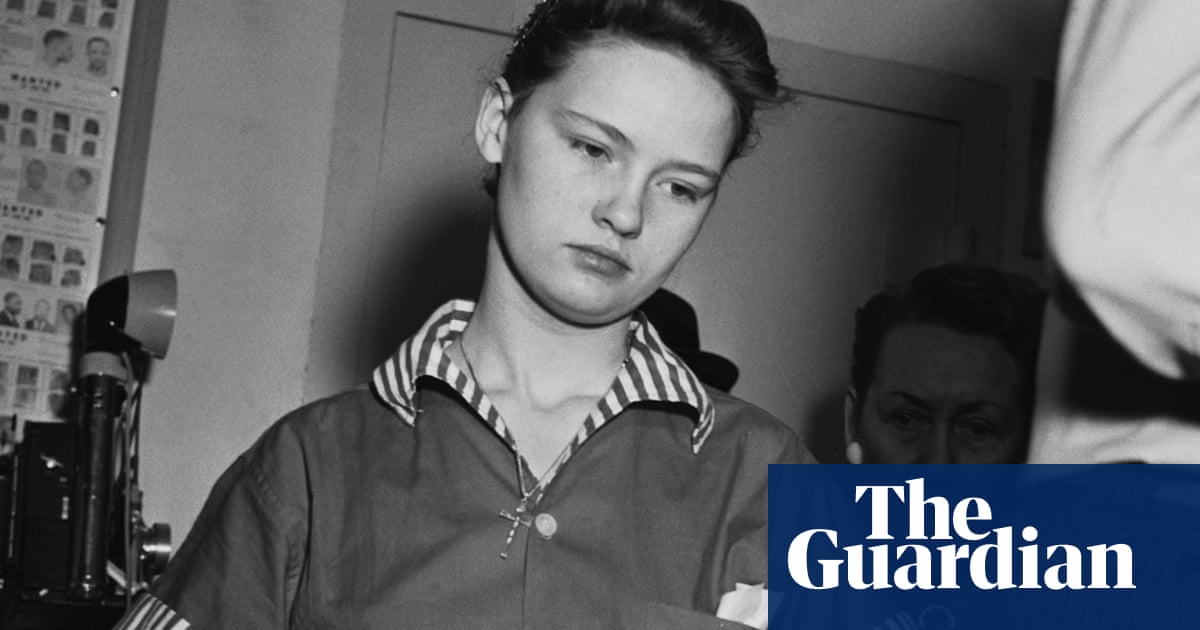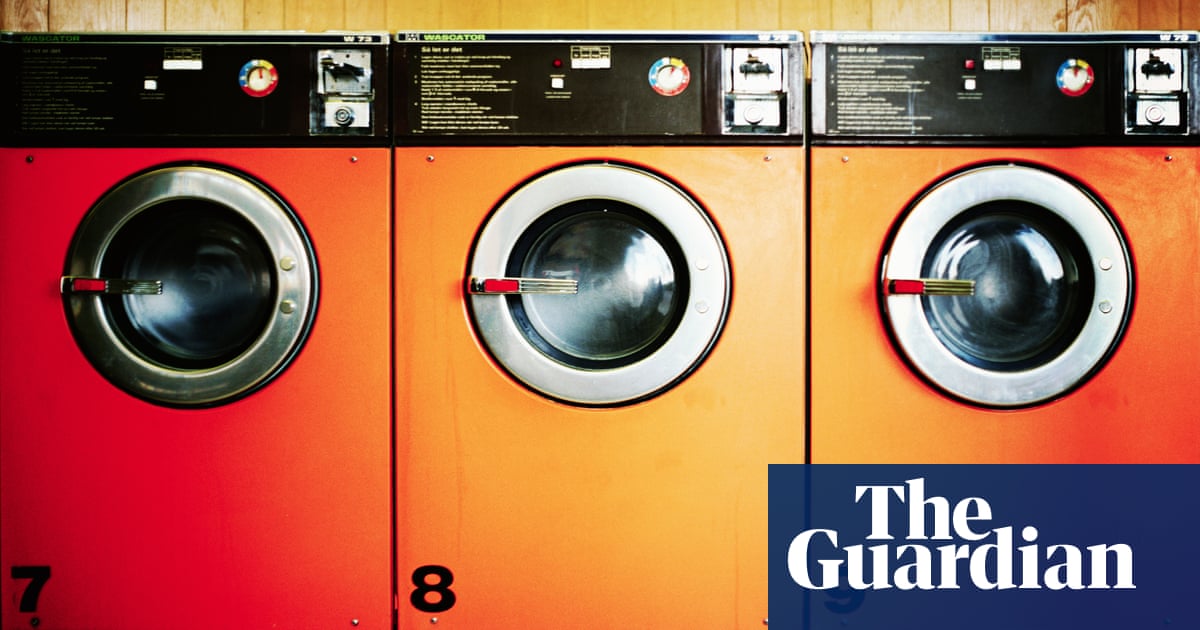
“Five, four, three, two, one. Happy new year!” This was Wuhan, China, at the dawn of 2020. Balloons climbed in the night sky. Shimmering light effects illuminated skyscrapers. Amid the joy came the solemn tolling of a bell – never send to know for whom the bell tolls; it tolls for thee.
Later on new year’s day, Chinese state media said that Wuhan police reported “eight people were punished for spreading rumours about an unknown pneumonia”. This juxtaposition of celebration and repression haunted Nanfu Wang during the making of In the Same Breath, her moving diptych about the coronavirus pandemic in China and America.
The world’s two biggest economies are often seen as adversaries that occupy opposing corners of autocracy and democracy. But the ways in which they rhyme in the film are inescapable, including the campaigns of misinformation waged by their leaders.
“It was never my intention to contrast, to say, ‘Well, this country did better this way,’ and, ‘This country did the better in that sense,’ and I don’t think it’s meaningful to do that, which actually was what the two countries’ governments have been doing,” Wang, 35, says via Zoom from her home in Montclair, New Jersey.
“That’s meaningless and it actually inspires the nationalism of its own country and trying to almost distract people from seeing what are the real problems. So in this film, I was hoping that people will see that despite the differences that the two countries claim they have – ideological and political – in the end, the problems of misinformation, lack of transparency, censorship and propaganda exist in both countries.”
Chinese-born Wang, whose past work include the Sundance grand jury prize winner One Child Nation, has lived in America for nine years. She returned to her home town, about 200 miles outside Wuhan, each January to celebrate the Chinese new year with her family. In January 2020 she travelled there with her three-year-old son.
She became aware of the nascent outbreak on social media, where government censors deleted social media posts showing people dying on the streets. She discovered a forum for people who tested positive but could not get treatment because hospitals were overwhelmed.
Wang says: “You have those two different types of information. One from the government said it’s fine, nothing is wrong, don’t believe in the rumour. Then you have the social media posts from people. There is a huge discrepancy between the two.
“For me, it was trying to understand what is real, how can I find out what was actually going on? Then the more I dug in, the more I realised what the government was telling people and the world wasn’t the truth. That’s what compelled me to make this film.”
She used 10 camera men and women across China, some of whom collected stories from the ground in Wuhan. They gained permission to film inside a hospital from a government that little guessed what the finished product would be or what a critical tone it would take.
Each person agreed to film for different reasons, for example from moral outrage or simply for the money. “Somebody started not really thinking critically about the government, but after being involved in this project and learning more, that person switched and changed his mind.”
The result is harrowing footage of the early days of the virus’s effects with bedridden patients being kept alive by ventilators. “My poor child,” says one man, looking at his young son.
Wang also retrieved astonishing surveillance footage from inside a clinic in Wuhan over four days in December 2019 in which people are seen complaining about fevers, chills and struggling to breathe. Some later tested positive for Covid-19.
Once the virus was so serious that it could no longer be denied, the Chinese media pivoted to a tone of relentless positivity, valorising medical heroes who were beating back the pandemic.
Wang reflects: “It is very typical for all these years that I’ve lived in China that whenever there is a tragedy, if it’s not a natural disaster, if it’s a result or consequence of the government’s mistake, the first step is always trying to cover it up and then the next step, if it’s no longer able to cover it up, is to turn it into a triumph story. I would say, again, it’s not a unique Chinese thing. We’ve seen it unfortunately through the pandemic in some democratic countries as well.”
The film-maker flew back to America on the same day that China started shutting down Wuhan in the hope of isolating it. But she then found herself living an action replay of the pandemic’s early stages. Donald Trump, the then US president, infamously downplayed the virus, insisting “one day, like a miracle, it will disappear” while long refusing to wear a mask, yet it soon spread like wildfire and has now killed more than 600,000 people.
Blaming it all on Trump would be too easy. however. Wang says: “So many news [reports] have pointed out the issues in his comments, his denial and his statements, how false those were and it doesn’t need another film to do that. But what the film really will show people is it would be a mistake to think that all of the issues that existed, all of the mistakes that were made, were because of that one person and when the election is over everything will be good, every problem will go away.
“That’s not the truth and I think for a truly democratic country, they should hold every administration, every leader, every person in power accountable, just as they were examining Donald Trump when he was in power. There was no early prevention. Every step of the way, when things could be done right, they weren’t.”
Trump was criticised for frequently using terms such as “China virus” amid a climate of growing hostility. Attacks on Asian Americans in 16 of the US’s biggest cities leaped by an unprecedented 164% during the first quarter of this year, according to police data compiled by the Center for the Study of Hate and Extremism at California State University, San Bernardino.
Wang has not personally encountered direct harassment or intimidation but says: “I hope that by first examining what led to that problem, whose action and whose behaviour led us to believe that Asians are to blame, which is ridiculous and absurd. Once we identify what really caused the damage, the tragedy, I hope then people will start seeing that who we should hold accountable and who we should blame and not Asians.”
Wang, who is herself a prominent character in the documentary, describes herself as pessimistic about the future. “At the end of the film you see how the world has celebrated with China and how the world feels after the election in the US, now everything is going to be fine and we move on. ‘Once the pandemic is over, everything is fine now, we return to the life that we have before.’ If they see it that way, my concern is we are going to experience all the consequences of the issues not very far from now.”
In the Same Breath was first shown in January via the virtual Sundance film festival and Wang, like everyone else, had hoped the pandemic would be on the wane by now, only to be thwarted by the highly contagious Delta variant. She would love to be able to watch the documentary in the same room as an audience some day. It also arrives on HBO on Wednesday.
“I hope that they can see this film and realise that it’s not a film about a virus or Covid and they can see through the pandemic and realise all the problems that exist in our societies, whether it is in China or in the US, and how invisible misinformation, propaganda and censorship exist in our normal everyday life,” Wang adds.
“The disinformation and misinformation are so invisible and not tangible but even more dangerous than the virus itself. It shares the same quality: it’s hard to detect and spreads really fast from one person – especially if that person holds power – to a thousand people saying the same thing and that transmits just as the virus does. But it’s much more dangerous than the virus if we don’t see it that way.”
In the Same Breath is out in US cinemas now and available on HBO with a UK date to be announced












